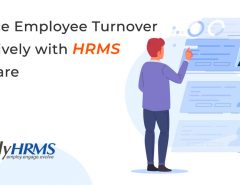Come holidays, the festive spirit invokes a sense of expectation for additional benefits amongst employees. Traditionally continued holiday bonuses have helped in building trust and harmony within organizations. However, with changing trends, businesses have started opting for such gratuities to be less contractual and more discretional as per market conditions.
Many business owners are faced with the dilemma of understanding and distributing end of the year bonuses, with there being no fixed precedent on handling such situations. So, many a time, bonuses become customary due to employee expectations. However, they end up burdening enterprises that are struggling to maintain profit margins when market conditions are unfavourable. In such a scenario, is handing out a holiday bonus right for your organization?
Determining the Feasibility of the Bonus:
Prior to distributing a bonus, you might want to go through your books to assess the feasibility of the overall intended setback your company would encounter. Once the clause of a Christmas or year-end dividend is inserted into an employment contract, the company becomes liable to reimburse the specified amount. Therefore, handing out large benefits in the initial stages of your business should be avoided as it might lead to setting yourself up for a disaster later on.
However, opting completely out of a bonus is not the best possible solution either as it may lead to your workforce feeling disappointed and undervalued, eventually making their venture out for favourable prospects elsewhere. Keep in mind that providing benefits is a way of expressing appreciation on behalf of the organization and should not become a cause of jealousy and resentment among employees due to disparities at the end of the year bonuses.

Types of Official Bonuses:
Official bonuses are generally divided into three different types. An organization may choose to offer a bonus in single or multiple of the following ways:
1. Yearly Bonus:
As the name suggests, a yearly bonus is a fixed amount offered as per the contractual terms of an employee in monetary form, regardless of the performance of the employee or the enterprise during that financial year. Some companies opt out of the clause of a yearly holiday bonus to avoid legal complications in the event of failure to provide such benefits due to financial instability.
2. Performance Bonus:
Performance bonuses are given out on the basis of the accomplishments of the company and its employees. These benefits motivate executives to put extra effort into meeting market-oriented targets. Such dividends may be fixed end-of-the-year bonuses, based on achieving a specified financial target, or maybe, of the nature of a tier system, wherein attaining higher individual benchmarks would lead to greater cash rewards.
3. Appreciation Bonus:
This type of bonus is usually given on the lines of recognizing the hard work put in by employees and is more economical to the company as compared to yearly or performance bonuses. The purpose of such a reward is to make workers feel important and it may be presented as a greeting card, a small goodie bag or festive company merchandise.
Communicating Bonus Information:
On employing executives, it is of great importance to express the company’s policy on holiday bonuses and set the terms of the agreement beforehand. It is natural for employees to be excited about rewards and dividends, and therefore, communicating information regarding the same must be done carefully to avoid complications later.

At the brim of it, begin by communicating whether there would be a bonus provided and in what form. As explained earlier, the three types of bonuses are yearly, performance and appreciation bonuses. Communicating the type of bonus would allow employees to set their expectations accordingly, leading to lesser disappointments in the long run.
Secondly, explain the terms of achieving a bonus and what time of the year to expect it from the company, i.e., quarterly, half-yearly or annually. This will assist the company in future clarifications regarding disqualification of bonuses and/or delay in distributing the rewards promised.
Lastly, make sure to ascertain and express whether a bonus must be expected every year or if it’s at the company’s discretion. In the event of an organization facing critical financial situations, it is imperative that the message is communicated to the workforce with regards to the annulment of the end of the year bonuses. Keeping employees in the loop and informing them of the company’s fiscal condition, softens the blow of cancelling a customary bonus.
How HRMS Simplifies Bonus Distribution:
One of the key functionalities of a good HRM solution is that of employee payroll management. HRMS systems assist in formulating employee contracts and keep a check on the overall liabilities of the organization through the payroll sub-module. Since it is impractical to have the same benefits for different hierarchal posts, keeping track of individual agreements becomes cumbersome without the use of an automated framework system.
Usually, the terms and agreements of holiday bonuses are laid down in compliance with bonus payment laws and labour laws of the region and are stated under the initial employment contract. Using an HRMS ensures that the compilation of various labour contracts is carried out legally on the lines of the company policies and in accordance with the budgetary constraints of the organization.

Not only does a competent HRMS solution assist in preparing employee wage slips, but also allows for festive, annual and performance bonuses to be incorporated into the company’s virtual database and financial analysis summary. Annual increments on basic salaries and advance payments made to employees are also calculated through the software.
Eventually, the factors to decide whether a holiday bonus is beneficial or not depends on the management, the financial conditions and the market situation, which must be thoroughly analyzed prior to reaching a conclusion. As a thumb rule, the slow introduction of end of the year bonuses proves to be favourable for any enterprise that decides to embark upon successfully handling and distributing dividends. Feel free to Contact Us and get a Free Demo.





Leave a Reply